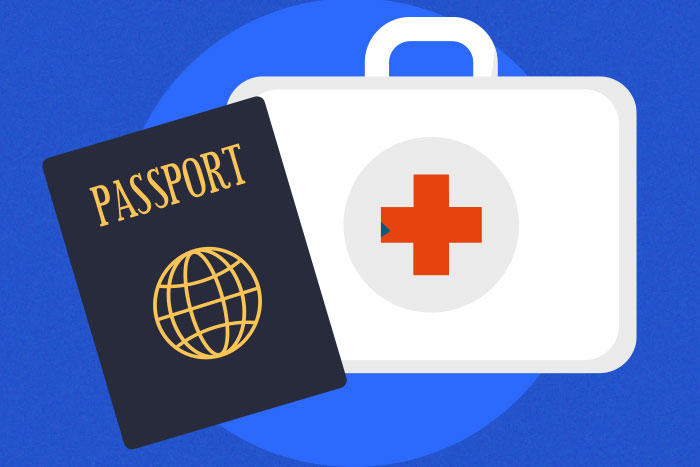Take it from seasoned travellers, who always carry a first aid kit. You never know how close — or far — a doctor or pharmacy will be when you’re far from home.
At the same time, do tailor the kit to the need. A Himalayan trek presents far different risks from a Disney all-inclusive. (And do you need one at all for a cruise?)
With these cautions in mind, here’s a shopping list to build your own traveller’s first aid kit.
BASIC FIRST AID KIT
- Adhesive bandages. A variety of sizes for scratches and cuts.
- Antiseptic wipes. To sterilize and clean a cut before putting on a bandage.
- Antibiotic ointment. For minor scratches, scrapes and bites.
- Gauze pads. Buy larger sizes and cut down as needed.
- Small scissors. To cut down gauze, bandages and tape.
- Disposable latex or vinyl gloves.
- Tweezers. For removing splinters and other debris.
- Adhesive medical tape. For securing gauze.
- Elastic bandage.
- Sunburn medication, such as aloe gel.
- Painkillers. Choose the kind you prefer at home and keep in the original bottle to prevent delays at customs.
- Insect repellent. Choose a safe and effective repellent containing DEET, Picaridin or Oil of Lemon Eucalyptus. Read instructions.
- Prescription meds. Order enough for your trip and store separately in your carry-on.
- ID Card: contact info, plus proof of travel health insurance coverage.
EXTRAS FOR EXOTIC LOCALES
- Oral rehydration salts, for severe diarrhea. Read directions carefully.
- Anti-diarrhea tablets. Imodium is best known. Read directions carefully.
- Water purification tablets. If there is no access to bottled or boiled water.
- Motion sickness tablets.
- Cold relief medication. Careful, as some can cause drowsiness.
- Anti-itch cream. 1% hydrocortisone for bug bites or other reactions.
- Moleskin. Protects foot blisters.
- First aid handbook.
Ask your doctor
If you’re going to a tropical destination or developing country, ask your doctor for advice. Or see a travel specialist, who may recommend specific shots or other medical precautions, depending on the destination, your health and medical history.

